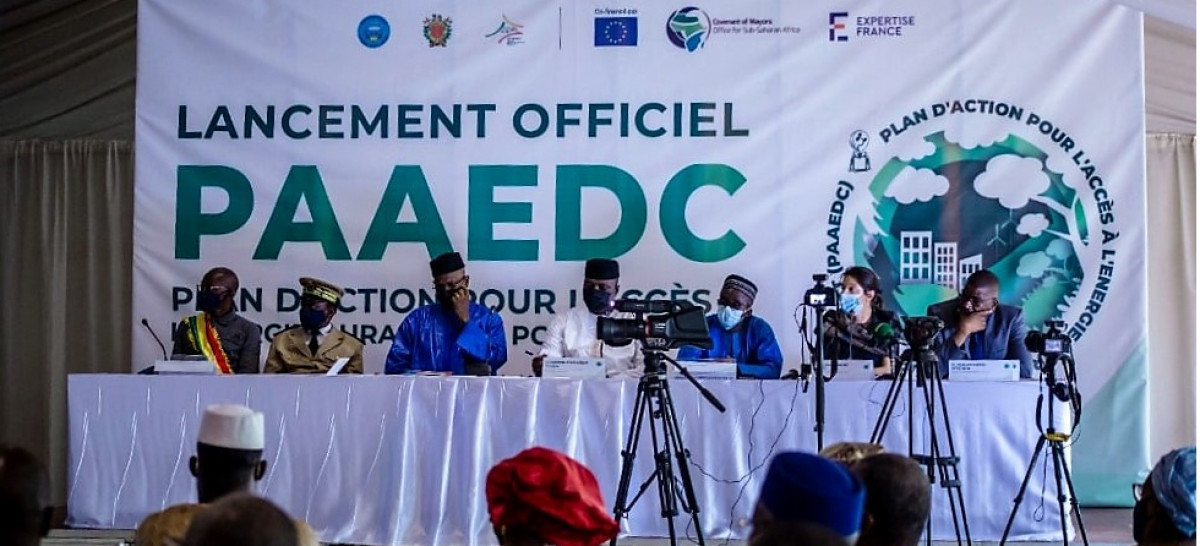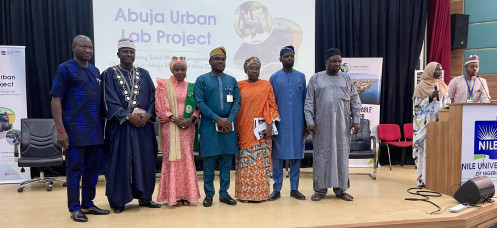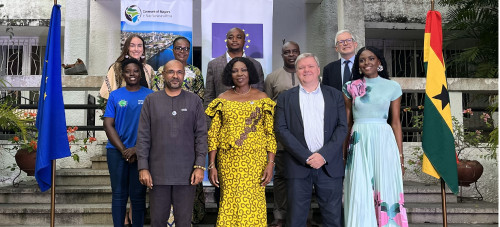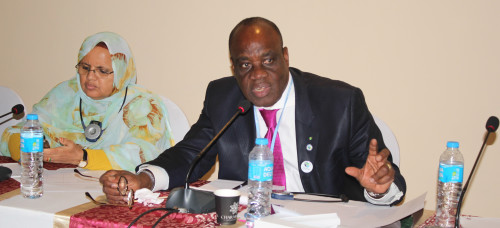CoM SSA, "triggering a real fight against climate change" in Bamako
Published: 1 Sep 2021

On 2 July 2021, the District of Bamako officially launched the development of its Sustainable Energy Access and Climate Action Plan in the presence of the Malian Minister of Territorial Administration and Decentralisation who is the national focal point for climate change at the Ministry of the Environment, Sanitation and Sustainable Development. This follows the completion of territorial baseline studies, which are the basis for defining the city's strategic energy and climate priorities.
"All the conditions are now in place to enable the city of Bamako to adopt a sustainable strategy integrating climate issues by 2030”.
With these words, Lieutenant-Colonel Abdoulaye MAIGA, Minister of Territorial Administration and Decentralisation of Mali, officially launched the development of the Sustainable Energy Access and Climate Action Plan (SEACAP) for the city of Bamako, a celebration which took place on July 2nd 2021 at the National Park of Mali, the perfect venue for an event such as this one.
The District of Bamako has been a member of the CoM SSA since June 2019
The City Council, the Regional Development Agency (ADR) of Bamako as well as local and regional experts, with support from the Agence Française d’Expertise Technique Internationale (Expertise France), have together conducted baseline studies providing a picture of its territory in terms of greenhouse gas emissions (GHG) sources, access to energy (electricity and cooking), as well as risks and vulnerabilities to climate change.
The experts were able to demonstrate "climate-energy" characteristics of the city on the basis of local data collection from official sources and exchanges with the population. On the basis of analyses and projections, they proposed scenarios indicating what the city could look like in 2030 depending on the level of action taken.
The GHG inventory shows, for example, that the majority of emissions come from transportation sector, accounting for 56% of the total emissions. Of this, 62% comes from freight transport and 38% passenger, this highlights the urgency to act on this sector through low emitting transport systems and traffic fluidity, especially through public transport.
Transport and buildings are also the leading energy-consuming sectors, using energy produced using fossil fuels (coal, diesel, oil). In order to limit its dependence on imports and improve its air quality, Bamako will therefore have to promote the use of renewable energies and energy savings (energy efficiency of buildings, public lighting, improved cookstoves to reduce pressure on forests).
The analysis of risks and vulnerabilities to climate change focused on the social and economic characteristics of the six municipalities that make up the district, as well as the risks faced by the inhabitants (changes in temperature and rainfall, frequency of extreme events) and their consequences on the different segments of the population. The District will have to work on preventing climate risks, improving the quality of basic services and strengthening adaptation capacities.
Joint and participatory work by many actors
It should be noted that the result of this work coincides with the revision of the Nationally Determined Contribution (NDC) of Mali under the Paris Agreement, and that national actors confirm the importance of the "territorialisation" of these objectives and the role of local authorities in their efforts to implement activities and report on results.
On the basis of these quantified and demonstrated elements, the city of Bamako, is now starting a consultation process with stakeholders, which allows the identification of priority actions and projects making up the SEACAP and will facilitate access to funding for project implementation in coherence with the Economic, Social and Cultural Development Plans (PDESC), currently under revision. Training and awareness-raising workshops and pilot projects illustrating the field of possibilities will complete the activities of the District in the framework of its commitment to fight effectively against climate change and improve access to sustainable and affordable energy for its inhabitants.
For more information on the process of developing the Bamako SEACAP and the results of the diagnostic studies: contact@adrbamako.ml
The CoM SSA programme is co-financed by the European Union and provides technical support and guidance on how to plan effective actions to respond to climate change and access sustainable energy.





